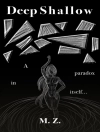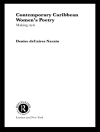Why do we tell stories? Why are stories so indigenous to religion? Stories. Sacred stories. The three Western Scriptures express themselves most fully, and deeply, in stories.
The original idea of ‘story’ is ‘inquiry, ‘ the ‘result of research, information, knowledge, ‘ ’telling, exposition, account, history.’ Its verb makes verbal these nouns: ’to seek to know oneself, inform oneself, do research, inquire, ‘ ‘interrogate, ‘ ‘examine, explore, observe.’ All history is story. Most Scripture is story. Such stories, all stories, ask for–even demand–attentive listening, interpretation, and reinterpretation. Each of us, therefore, becomes an interpreter, speaking in tongues (so to speak), even if only for herself or himself. The poems here offer such explorations; they take scriptural stories and imagine–and reimagine–them in order to offer the reader different angles and perspectives, new experiences. Such experiences, such perspectives, can help us see the Scriptures, and ourselves, anew.
Over de auteur
Pamela Cranston is an Episcopal priest in the Diocese of California, and the author of The Madonna Murders (2003) and Coming to Treeline: Adirondack Poems (2005). She has served several San Francisco Bay Area churches and hospices for the past thirty years. She lives with her husband, Edward, in Oakland, California.












